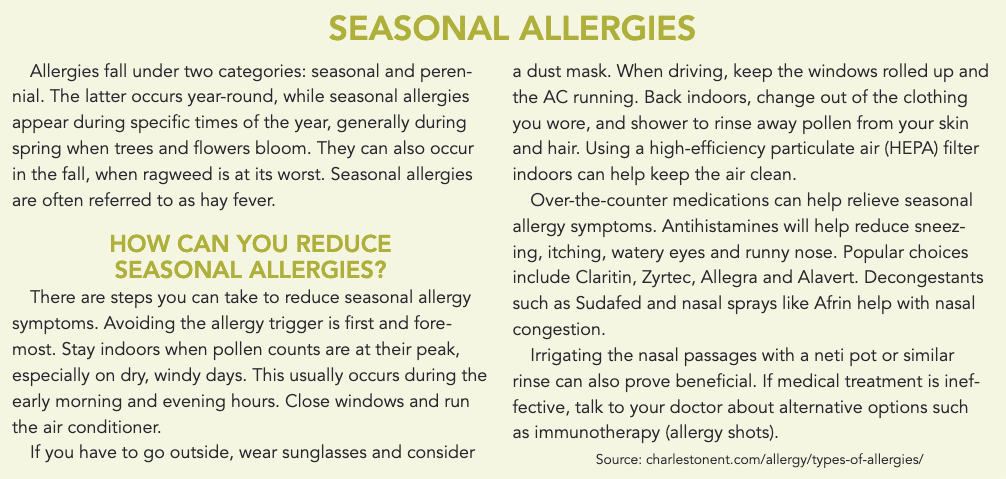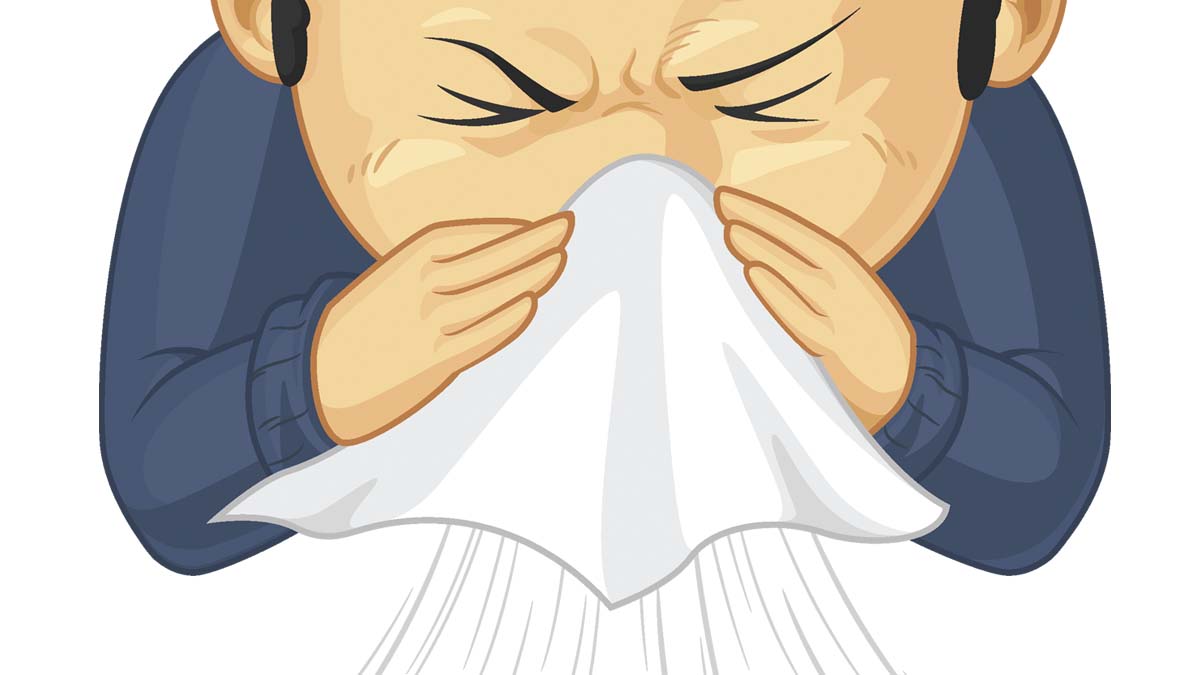Charleston resident Keaton Moore, 26, doesn’t prepare for the spring season the way most people do. No, she doesn’t focus on shifting winter clothes to another part of the closet to make room for brighter colors. She doesn’t mark outdoor weekend trips on her calendar.
Moore’s preparation for spring calls for bulk purchases of soft tissues, decongestants and nasal sprays.
Like many South Carolinians, she both welcomes and braces for Spring, due to her allergies.
It doesn’t help that South Carolina is often ranked as the worst state for allergies, thanks to the warm climate and high concentrations of pollen that contribute to a long allergy season.
“From prescription meds to Zyrtec, drops for itchy eyes and a face mask while I push layers of pollen off my car, spring is beyond inconvenient for me,” Moore said. “I drink lots of water; I constantly try not to bring my hands to my face. Morning through the night, allergies drive me crazy.”
Moore’s symptoms are “classic seasonal allergy symptoms,” explained Dr. Ari Zelig, an allergist with the Charleston ENT & Allergy team. “And often seasonal allergies can inflame a host of more serious issues like asthma, eczema and inflamed nasal passages, which can lead to loss of smell or taste.”
Dr. Zelig estimates that for 80% of the children with asthma who come to Charleston ENT & Allergy, seasonal allergies are a trigger; in turn, 60% of the adults suffer from allergy-triggered asthma.
Dr. Zelig is quick to note that it is an exciting time to be an allergist and, if there ever is one, a good time for people like Moore who have been haunted by allergies all their lives.
A growing number of doctors with different specialties are joining one practice. Now, patients can go to places like Charleston ENT & Allergy and be connected to a team of doctors who can home in on their needs collectively and more swiftly. As a result, Zelig said, “patient outcomes are significantly better.”
Treatments and medicines have advanced as well.
“We used to have one tool to treat allergies, then more. Over last 10 years, there has been a burst of studies and medications linked to Bacillus — a probiotic bacteria which alleviates allergies,” Dr. Zelig explained. “Combined with looking at a patient’s history and new allergy tests, these new medications are helping patients and doctors a great deal.”
Dr. Zelig noted that for 20 years, Xolair was the effective go-to drug; now, Dupixent, which targets inflammation more, is also helping allergy patients, especially those who suffer from asthma or sinusitis with nasal polyps.
Oak, bayberry, pine, hickory, walnut, ash, mulberry, cedar and willow trees may be whipping around pollen as they are in full bloom, but for people like Keaton Morris and allergists like Dr. Zelig, bloom doesn’t have to bring the doom that it once did.
By Lisa Moody Breslin








